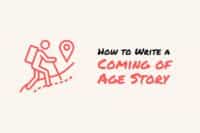Sentence structure matters, no matter who you are.
You might be a student trying to get a passing grade on an essay, a guy trying to text to a smart girl without humiliating yourself, an employee writing a company-wide memo, or a writer working on your next book. When sentence structure gets out of whack, there can be consequences (no passing grade, no first date, no raise, no publishing contract, no bueno).

Photo by Nawal Al-Mashouq (Creative Commons)
Bad Sentence Structure Makes for Weird Sounding Sentences
When you write, you use a different part of the brain than when you speak. That's why writing can be so hard for many of us, myself included. You might communicate perfectly when you talk, but when you write, you stare at the screen for fifteen minutes trying to figure out what to say.
Many people especially struggle with sentence structure. Most of us are taught sentence structure in the third and fourth grade, but we usually forget it just as quickly.
Who really needs to know what a subject and predicate is or why you shouldn't use comma splices?
Who needs to know? You do! That is, if you don't want to your writing to sound ridiculous. If you don't structure your sentences correctly, your writing will sound strange, like there's something “off” about it. This might not matter in a text message to your friends, but it could definitely matter when you're writing that essay for English class or sending an important email for work.
Here's the point: Smart people use correct sentence structure. (Tweet that?)
Sentence Structure Basics: Subject and Predicate
To begin, let's talk about the basics of sentence structure. If you're serious about sentence structure, you probably already know what a subject and predicate is. For everyone else, here are the simple definitions:
Subject. The subject is what the sentence is about. For example: John drove his car off the bridge. Is John crazy?
Predicate. The predicate is what the subject is up to. In other words, the predicate “completes an idea about the subject,” according to Wikipedia. For example: John got out of the ruined car, and he laughed uproariously. A subject almost always includes a noun (there are some exceptions), but a predicate must include a verb.
Sometimes, a subject isn't included in the sentence but just implied. For example, Don't drive off bridges! Here, there is no subject, but it's implied by the context.
For more complex explanations, use the following links (subject, predicate).
The 4 Types of Sentences
When you put a subject and a predicate together, you get a clause! (Yes, like Santa.) The fun thing is you can combine clauses together to form different types of sentences.
Good writers vary the types of sentences they use. For example, don't use too many simple sentences. You might sound childish. However, if you use too many compound-complex sentences, your writing might be too difficult to understand.
Here are the four types of sentences:
Simple Sentences
Simple sentences contain a single clause (i.e. one subject, one predicate). Here are a few examples:
- John had broken his toe.
- John shouted in pain.
- John was very stupid.
Compound Sentences
Compound sentences contain two independent clauses (independent because they could be their own sentences) which are joined together with a coordinating conjunction (i.e. and, but, or, so). Here are a few examples:
- I didn't know why John drove off the bridge, but Mark did.
- I asked him why, but he wouldn't tell me.
- I stopped asking, but I still wondered.
Complex Sentences
Complex sentences contain one independent clause and one or more dependent clauses (dependent because they couldn't be their own sentence) which are joined together by a subordinating conjunction (e.g. that, because, if, etc.*)
- Everything changed when John drove off the bridge.
- Whenever I drove across that bridge, I would think about driving off, too.
- Even though I would never do it, I thought about it all the time.
*Here's a full list of subordinating conjunctions.
Compound-Complex Sentences
Compound-complex sentences contain at least two independent clauses and one dependent clauses. Here's a long compound-complex example:
Sometimes, when I drove over the bridge, my hand would start to turn the steering wheel toward the edge, but I would quickly stop myself because even I didn't want to die.
When Sentence Structure Goes Wrong
You've seen how sentences are supposed to look, but what happens when sentences go wrong? And how can you avoid sounding like an idiot by structuring a sentence incorrectly? Here are four common ways sentence structure goes wrong:
1. Comma Splices
What if you decided to take two sentences and join them with a comma instead of a period? (Or, for the grammarphiles, what if you joined two independent clauses with a comma but left out the subordinating conjunction?)
Well, you would have a comma splice, and comma splices are bad.
Here's an example of a comma splice:
John broke his toe, he shouted in pain.
See what I mean? Don't do that.
Instead, just put in a conjunction (and, but, or, so) or replace the comma with a period.
John broke his toe, and he shouted in pain.
OR
John broke his toe. He shouted in pain
Isn't that better?
2. Fragments
A fragment is an incomplete sentence. It might have a subject. It might have a predicate. It never has both.
Here are a few examples:
- John broke his toe. And shouted in pain. (no subject)
- Everything changed. When John drove off the bridge.
Fragments are against the rules, but in certain situations, they can be used effectively as a stylistic choice. However, unless you know what you're doing, it's a good idea to avoid them.
3. Run-on sentences
A run-on sentence is kind of like a comma splice except you take out the comma. Here's what I mean:
John broke his toe he shouted in pain.
Run-on sentences are bad. Put a period in between those clauses!
Why You Should Care About Sentence Structure?
You probably aren't going to diagram every sentence from now on. However, by becoming familiar with correct sentence structure, you will become a better writer, and becoming a better writer could help you pass your next class, get a job, and avoid humiliation on Facebook. It sounds like a good choice to me!
PRACTICE
Write a story about a guy who drove off a bridge. In your story, use at least one example of each of the four types of sentences we talked about above. Avoid the sentence-structure pitfalls.
Write for fifteen minutes. When you finish, post your practice in the comments section. And if you post, be sure to leave feedback for your fellow writers.
Have fun!







I once knew this guy named John. He was a real show-off; he’d do all kinds of stupid things to attract attention. Some of John’s stunts weren’t very funny. You could say John acted like a jerk at times and you’d be right.
However, John’s mother and father doted on their only child even though he didn’t always use every corner of his brain on all occasions. Can you guess what they did? John’s parents bought their darling son a car. They gave it to him for his eighteenth birthday, hoping it might teach John some responsibility, but they were in for a major disappointment.
As I said, John can be a real show-off, so one day he decides to try flying over the Stone Creek Bridge and then taking the sharp right turn at the other side on two wheels. He tried this stunt after a few drinks and a day of rain. He failed to take into account the fact that the pavement might be a mite slippery, furthermore, a passing farm tractor had left some mud on other side, which greased the road nicely.
Can you imagine? John goes flying over the bridge all right and took the turn as planned, but when his wheels hit that mud his car started doing a figure 8. The last thing it did was to slip off the road and down the bank into the creek, making a nice splash for effect as it hit the water and sank.
John was lucky; the creek water was low right then. He managed to open the side window and climb out onto the roof, then he jumped into the water and waded to shore. And wouldn’t you know it? The first one to come along and give him a ride home was the preacher at his parents’ church.
John’s father told him that after this stunt there was no way he was going to co-sign a loan so John could get another car, so he’d just have to buckle down and work until he’d earned enough money to buy one himself. And since John’s uncle was the loans manager at our local bank, it was several years later before John got his second car.
Very witty and entertaining. I especially liked the line: “One evening he decides to try flying over the Stone Creek Bridge.” Keep up the good work! : )
My best bud was called John. He loved to make lots of jokes, because he liked to make people smile. The moment anyone met John, they became friends instantaneously. You could say he was the best.
But one day that all changed.
I was home, waiting for Josh to come over. I had invited him to come over for a beer. I sat on the couch, watching today’s hockey match. Waiting for the familiar beeping of his truck, and the slam of the door. I heard somebody knocking on my door, and I rushed to it, thinking Josh had arrived. But when I opened it, I found a burly police officer in uniform. I felt my heart squeeze. Why was he here?
“May I come in?, I need to talk to you.” Asked the burly police officer somberly.
“Make yourself at home.” I told him, stepping back to let him in. The police officer walked in and sat at the dinning table. He motioned me to sit across him. I walked nervously towards the chair and sat, turning to face the officers eyes.
“What is this about?” I asked him, feeling a pit open in my stomach. I felt something wasn’t right.
“Its about your friend, Josh.” The police officer answered slowly and gravely. I felt dread rise up inside of me. What was going on? What happened to Josh? Is he safe? I was about to ask all those questions before he raised his hand.
“His car slid off the bridge and crashed. The bridge was covered in too much ice.” The officer said as a tear rolled down his cheek. “Josh is… gone.”
I felt my heart sink, along with all my hopes. Josh, gone forever? I couldn’t believe it. I could not accept this hideous reality. It was as if somebody telling a little kid Santa was made up. Tears rolled down my cheeks freely. I hated myself for crying, but I couldn’t stop myself. The officer put his hand on my shoulder, as if trying to comfort me. And so I lay there, crying as the officer held my shoulder.
I cried for a long time.
You’re story is good but I think you need to add some longer sentences. Most of yours are about the same length, quite short.
“Make yourself at home” sounds too off-hand, not like what you’d say to a police officer standing at your door looking grave.
Ahh, thanks for catching that mistake/error. I winged it more or less, But thank you for your feedback! it helps :3
I have a bad habit of making my sentences overly complex. I’ve never really thought about different types of sentence structure, but here goes nothing.
~~~
I was six when John drove off the bridge.
He did it exactly two days after he stabbed his best friend Niko to death, and about six hours after he woke up from one of the supervisors smashing him in the head with his baseball bat. I remember the way he looked then, the back of his head painted and stiff with dry blood, and I remember the scream when he saw Niko. I mostly remember the empty, dead look in his eyes as he just sat in the corner of the Orphanage lobby for hours.
He didn’t eat, and no one tried to make him; it meant more for everyone else. The meaning of ‘selfless’ was lost on the lost, beaten children of the foster house. I watched him. I thought about asking him why he had stabbed Niko like that, but I was scared– what if he stabbed me, too?
When he disappeared, no one called the authorities; I think they were relieved that he was gone. But the Miss got a call from the police saying that one of her ‘children’ had stolen a car, and then later that he had driven it off of the Bade Bridge. Turns out he didn’t die, but he’s paralyzed for life. I almost envied him– at least he got out of this stinking place that had the audacity to call itself a foster home. It didn’t foster anybody; it only broke them. Broke them and beat them and left them for dead.
Now, seven years later, I still remember, and I still wonder why he did it. My naivety gone, I wonder if he was high when he stabbed him, and then was so distraught when he woke that death was welcome. Well, death was welcomed by many people in this house, whether they stabbed their best friend to death or not. I stared up at the ceiling of the bedroom, and listened to the breathing of the ten or so other girls that slept.
Moonlight stuttered through the grimy window that I slept beneath, and I lifted up my arm, inspecting the newest of a multitude of injuries. It had been three days since the guard had slashed open the soft skin on the bottom of my forearm for staying out past curfew– it wasn’t because he really cared that I’d stayed out late that he cut me, but because he was looking for an excuse to hurt someone. I could see it in his eyes when I walked inside. It was deep and long, and it was throbbing in a worrisome manner. If I squinted at it it looked like it might be swelling, too. I gnawed on my lip and cast by gaze around the room and sighed.
I stood up. I was going to go steal a car.
I have to admit, there’s almost nothing more annoying than reading a book that has sentences such as the dreaded: “He jumped off a cliff, screamed.” “She picked up a hammer, threw it.” The only thing that bothers me more is “Tears streamed down his face. He was obviously sad.” Sorry, had to vent. : )
ya big turkey
Cruz your a big turkey
george is a big turkey
David is a big turkey
hi
david im watching you yeah big turkey
you big chicken
remi you big turkey
i like turkeys ;)))))
the guy who drove off the bridge is a big turkey
got eeeemmmm
yeah big turkey
Have any tips on how to reduce the conjunction “and” in writing? It’s seriously annoying me and I feel that taking a few out would help with the rhythm and structure.
Before mentioned sentence structure since the inceptions making the ideal thoughts in improving as well as processing the bets part for all. it does not seem unreasonable to suggest that the entire way out is making the movements professional plus precise from the beginning.
Before mentioned sentence structure since the inceptions making the ideal thoughts in improving as well as processing the bets part for all. it does not seem unreasonable to suggest that the entire way out is making the movements professional plus precise from the beginning.
I woke up screaming, in the middle of the night. I had a nightmare about my brother John, driving his car off the side of the road on ole’ man cliff. John and I we’re very close even though we we’re 12 years apart in age.
I can’t believe that his funeral is tomorrow. Who am I going to talk to about my boy problems? I can’t talk to my mother, she doesn’t believe in dating at my age.
I get up out of the bed to go and get some water. I hear noise coming from my mother’s room. I go in and check on her. She is tossing and turning, she must be having a bad dream as well. I walk in and place my Hand on her and whisper in her ear. Momma, “Everything is going to be alright. ” I kiss her forehead, walk out, and close the door. Tomorrow is gonna be a hard day for the both of us.